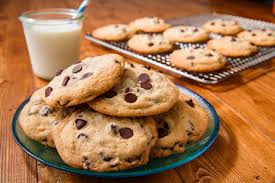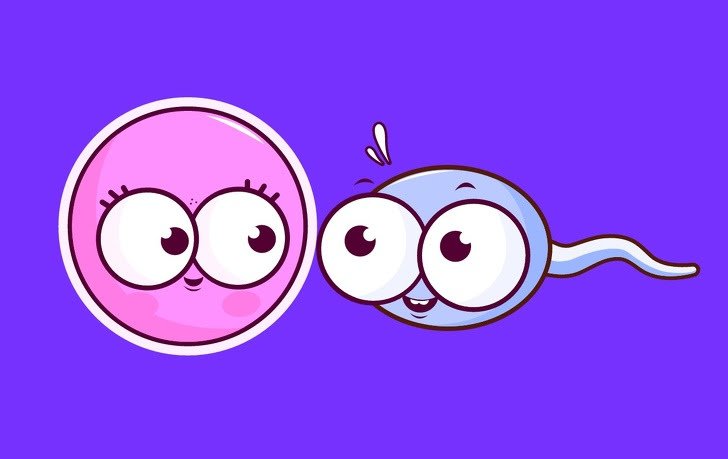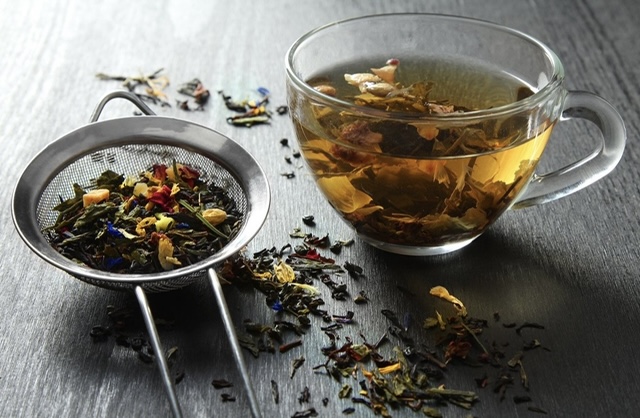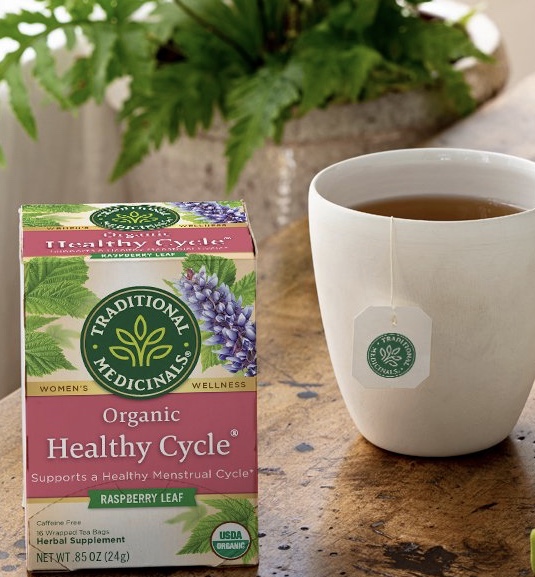
Why am I craving sweets?
It’s a common question you may ask if you’re part of the 75 percent of my readers that experience sugar cravings either daily or multiple times per week. There are lots of theories out there on the internet with anything from micronutrient deficiencies to yeast overgrowth. Personally, I’ve struggled with craving sweets throughout most of my life. But, it wasn’t until I took a step back and really questioned WHY I had these sugar cravings that I started to see a significant reduction in my sweet cravings.
As a Holistic Coach, I believe in treating the root cause of illness. This means that, unlike many other conventional health gurus or celebrities out there, I look at sugar cravings from a holistic point of view. Your body is extremely smart. It is meant to function like a well-oiled machine. Unfortunately, our modern lifestyles are throwing this natural balance out of Here are the 5 most common reasons you may be craving sweets, and what to do to fix it!
1. You’re eating too many carbs, and not enough protein or Carbs are not evil or unhealthy. But, like anything in life, there is a delicate balance between a healthy amount of carbs and eating too many which may lead to craving sweets. What are carbohydrates? Carbs are one of the main macronutrients along with protein and fat. Our body breaks carbohydrates down into glucose, which our cells then use for energy.
Foods that contain carbohydrates include:
Grains: bread, rice, quinoa, pasta, cereal, crackers
Sweets: desserts like cookies, candy, donuts, soda, etc.
Legumes: all beans, green peas, soybeans/edamame, lentils
Starchy vegetables: corn, potatoes (sweet or white), beets, pumpkin, and some squash varieties
Fruits: whole fruits or fruit juice
Dairy: milk, yogurt, ice cream
When we eat carbohydrates, our blood sugar naturally increases, and our body releases a hormone called insulin. The insulin helps lower our blood sugar back to normal. When we eat a meal or snack ONLY containing a carbohydrate (or too much), our blood sugar spikes like a mountain top. Just as quickly as our blood sugar spikes, we also see a quick drop in our blood sugar. This leaves our body feeling like we need a quick source of energy (in the form of sugar) usually within just one hour.
When we include a healthy protein or fat WITH our carbohydrate, it limits the dramatic roller coaster effect of our blood sugar (1). Instead, it naturally creates a slow rise, but returns to a more comfortable level thus reducing your sweet cravings.
What you should do instead:
Limit carbohydrates to a 1/2 cup (1 serving) per meal. When including a carbohydrate with a meal, try to keep it to about 1/4 of the plate, and prioritize carb options that also contain fiber and/or protein such as quinoa, brown rice, beans/lentils, or starchy vegetables.
Always PAIR a carbohydrate with a protein or fat food. I often see people missing the mark on this for breakfast and snacks. For example, if you eat oatmeal in the morning, you should include a protein or fat WITH your oatmeal such as nuts (walnuts, cashews, almonds, etc.), seeds (ground flax, chia, pumpkin, etc.), peanut/almond butter, or even a hard-boiled egg on the side. To limit craving sweets, you should also incorporate proteins or fats with your snacks!
Don’t fear the fat. Using a healthy, real food source of fat in your meals and snacks is an excellent way to limit craving sweets because it suppresses your hunger hormone, called ghrelin. This is why many people report decreased sweet cravings on some of the low-carb diets (see my take on the keto diet here). Healthy fats include avocados, fatty fish like salmon or sardines, nuts, seeds, coconut oil, olives, nut butter, and FULL-fat cheese and yogurt. Try tossing olive oil or butter with your vegetables (it makes them taste better, too ?).
2. You aren’t sleeping enough.
I know that lecturing about sleep hygiene can be a snooze fest (bah dum dum ?). But you guys. Sleep is ONE OF THE MOST UNDERRATED healthy habits in this country. Especially when it comes to limiting how often you are craving sweets.
Studies show that sleeping less than 6 hours a night decreases the hormone that tells your brain that you are full (leptin) and increases your hunger hormone (ghrelin)(3). Basically, after just one night of sleep deprivation, you will feel more hungry during the day, and this appetite will remain unsatisfied no matter how much you eat. Ain’t life just rough sometimes? ? Some of these same studies report that people with inadequate sleep eat, on average, an additional 300 calories per day than their well-rested counterparts. In particular, sweet cravings increase by up to 40 percent.
Based on these estimates, consistently sleeping less than 6 hours per night may lead to an additional 10 to 15 pounds of weight gain per year.
Why do we experience more sweet cravings when sleep-deprived?
Dr. Matthew Walker, neuroscientist, and author behind the new book Why We Sleep discovered that poor sleep actually lowers brain activity in our prefrontal cortex which is normally responsible for rational thinking and controlled decisions. On the other hand, the motivation and desire sections of our brain are amped up, meaning high-calorie, high-sugar foods become more desirable to us when sleeping less than 6 hours a night.
What you should do instead:
Make sleep a priority as much as possible. Aim for 7-8 hours of sleep per night.
Avoid caffeine after 1 pm.
Stick to
a consistent sleep schedule and routine (adults need this, too!)
Make your bedroom dark, cool, and gadget free. Consider charging your phone on the other side of the room (or even somewhere else in the house) to avoid the temptation to use technology.
Get outside in natural sunlight for at least 30-minutes per day to support your circadian rhythm (bonus points if you walk during this time!).
Avoid alcoholic drinks before bed (alcohol may rob you of deep REM sleep).
3. You’re ignoring your hunger and fullness cues.
Your body has internal signals and hormones that tell you when you are hungry or full. While we now know that sleeping can disrupt these signals, it’s important to honor those signals throughout the day in order to reduce sweet cravings.
Skipping meals, overeating, binge eating, or emotional eating are all signs that we are not as in-tune with our body cues. Think of your appetite as a scale from 1 to 10. Number 10 is Thanksgiving stuffed, super uncomfortable, food coma. Number 1 is “I’m-going-to-eat-my-arm-off-starving”. It is best to stay between 4 and 7 at all times. Listening to your inner scale can prevent you from dipping into the dangerously low 1 to 3 scale when we are more tempted to reach for the high sugar snack.
What you should do instead:
Try your best NOT to skip lunch. If you are short on time, at minimum, try to have a paired snack with a protein and/or fat-containing food.
Regularly check in with your appetite scale throughout the day. Are you still between a 4 and a 7?
Incorporate “preventative snacks”. Do you find yourself binge eating when you get home from work? You may need to incorporate a healthy snack 1-2 hours before heading home.
Distinguish between emotional hunger and physical hunger. True hunger develops slowly over time and can be satisfied with any food you like.
Eat slowly, and try to avoid eating when you are distracted (i.e. watching TV, driving, playing on your phone) because this blunts our ability to recognize our cues.
4. Your stress hormones are too high
When we’re stressed, we eat sugar. When we eat sugar, we get stressed. Ah, the vicious cycle. I’m sure we’ve all ate due to stress at some point. But, why are we craving sweets when we are stressed out? A lot of it has to do with your main stress hormone, called cortisol.
Stress is not necessarily a bad thing. If we are running from a bear, we want high levels of cortisol so our body can pump blood to our extremities, increase our heart rate, and push us further. But…we don’t really get chased by bears nowadays. Most of our stress comes from work deadlines, relationships, finances, kids, and more. This type of chronic, low-grade stress leads to a constantly elevated cortisol level in our body.
Here’s the problem: cortisol raises our blood sugar, increases our appetite, and worsens those irresistible cravings for junk foods. Higher levels of cortisol levels due to chronic stress is directly associated with increased calorie intake and craving sweets (4).
What you should do instead:
Put bluntly, stress makes us sick, slow, and stupid. We NEED to have a healthy way to release our stress and lower our cortisol levels if we want to reduce our sugar cravings. Successful stress-reducing activities include reading, journaling, yoga, deep breathing, meditation/mindfulness (I like Ziva Meditation or Headspace), prayer, taking a bath, walking in nature, and so much more. You should have at least one stress reducing habit you incorporate into your routine every single day. Adaptogenic herbs, like ashwagandha or maca, may also help naturally balance cortisol levels (5, 6).
Related post: Check Myholisticcounselor.com
5. You restrict sugar too much.
Say what!? That’s right. You may be craving sweets because you are too restrictive in your diet. Although the media likes to thrive on the idea that sugar is more addictive than cocaine, the research simply does not back this up. Sugar addiction, as some like to call it, is similar to many other addictive disorders. But, it is not on the same caliber as say, drug addiction.
Animal studies show that rats experience addictive behaviors towards sugar only when food is restricted for longer periods of time. Restricting food (like in trendy detoxes or low-fat diets) may actually cause sugar addiction behaviors like binge eating, withdrawal symptoms, and increased cravings. How ironic is this? The trendy diets that may claim to help you “detox from sugar” may actually be leading you craving sweets and addictive eating behavior.
What you should do instead:
Give yourself the permission to enjoy the occasional ice cream date, piece of grandma’s pie, or a homemade cookie. Restricting too much can backfire.
Avoid trendy, restrictive diets that make you ignore your hunger cues and severely cut your calories.
Take home message…
There are still many possible reasons why you are craving sweets. BUT, in my counseling practice as a registered dietitian I have found that these five root causes of sugar cravings are usually the main offenders – and a great place to start.
While I’m sure you all know the detriments of too much sugar in our diets, we also want to have a healthy relationship with ourselves and the foods we eat. Avoid over-restricting or shaming yourself over sugary foods. Instead, focus on the bigger, holistic picture. Implement small, healthy habits into your daily lives, like getting enough sleep, reducing stress, listening to your body’s cues, and fueling yourself with wholesome fats, proteins, and fiber.
Health Topics





